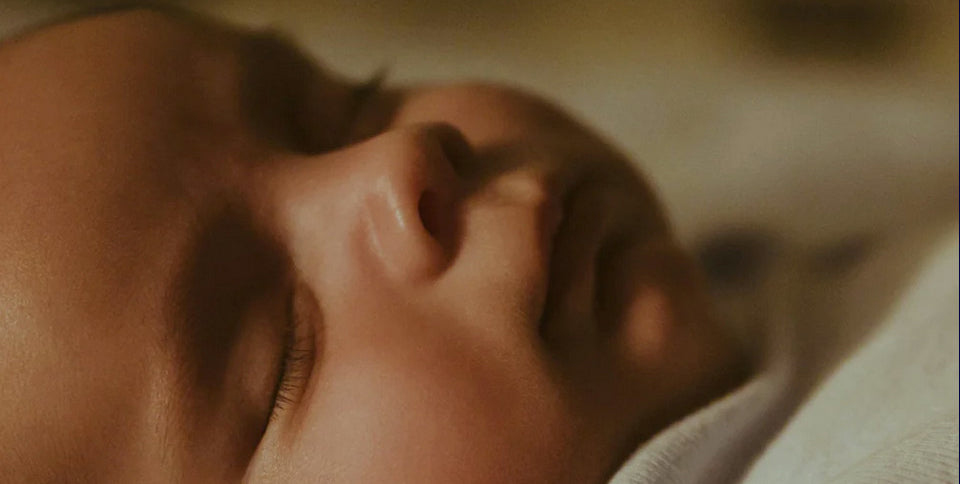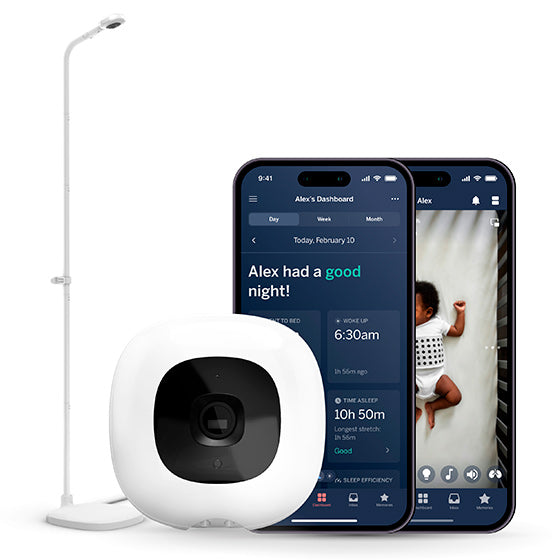Yael K. Rayport, Ana Barrera, Carmela Alcántara, Daianna Rodriguez, William P. Fifer, Shambhavi Thakur, Natalie Barnett, Maristella Lucchini
Presented at 37th annual conference of American Academy of Sleep Medicine(AASM) 2023
Abstract
Introduction
Many new mothers experience poor sleep postpartum, which has been found to increase the risk of negative cardiovascular health and mental health outcomes. A few studies have found that experiences of racial/ethnic discrimination are associated with poor maternal sleep, but less is known about the effect of discrimination in other domains. Previous studies have also not accounted for the effect of infant sleep on maternal sleep, which is known to be a major influence in the first year after birth. This study aims to investigate the association between gender discrimination (GD) and postpartum maternal sleep, controlling for infant sleep.
Methods
The cohort comprised 506 mother-child dyads from the customer base of the Nanit Smart Baby Monitor. At 6–12 months postpartum (Mean±SD: 9.2±1.8), maternal experiences of GD (Everyday Discrimination Scale), perceived stress (Perceived Stress Scale (PSS)), and subjective sleep (Pittsburgh Sleep Quality Index) were assessed. Objective measures of infant sleep were obtained using the Nanit Smart Baby-Monitor. Logistic and linear regressions estimated the associations between maternal experiences of GD and maternal sleep, controlling for PSS, household income, infant age and sex, and objective infant sleep duration and wakings.
Results
34.6% of mothers reported experiencing GD. The average PSS score was 15 (± 6.7). Infants had an average sleep duration of 10h (± 1.2) and an average of 3.1 (± 1.4) nighttime sleep wakings. Maternal experiences of GD were associated with shorter sleep duration (OR=1.67, CI=1.07-2.64) and more sleep disturbances (β = 0.77, CI= 0.04-1.49). The PSS was associated with more sleep disturbances (β = 0.11, CI= 0.05-0.16). Objective infant sleep duration was associated with subjective maternal sleep duration (OR=0.57, CI=0.47-0.69).
Conclusion
Maternal experiences of GD are associated with worse postpartum maternal sleep, suggesting that sleep could serve as a biological pathway relating GD and postpartum health. Future research is needed to investigate the long-term implications of maternal experiences of GD on maternal-fetal health.
About the researchers
Yael K. Rayport, Ana Barrera, Carmela Alcántara, Daianna Rodriguez, William P. Fifer, Shambhavi Thakur, Natalie Barnett, and Maristella Lucchini

- Shambhavi Thakur serves as Clinical Research Data Analyst at Nanit. She holds a Masters degree in Health Informatics and Life Sciences. She oversees the research collaborations with various universities and analyzes sleep data for internal as well as external studies.
- Dr. Natalie Barnett serves as VP of Clinical Research at Nanit. Natalie initiated sleep research collaborations at Nanit and in her current role, Natalie oversees collaborations with researchers at hospitals and universities around the world who use the Nanit camera to better understand pediatric sleep and leads the internal sleep and development research programs at Nanit. Natalie holds a Ph.D. in Genetics from the University of New England in Australia and a Postgraduate Certificate in Pediatric Sleep Science from the University of Western Australia. Natalie was an Assistant Professor in the Neurogenetics Unit at NYU School of Medicine prior to joining Nanit. Natalie is also the voice of Nanit's science-backed, personalized sleep tips delivered to users throughout their baby's first few years.
- Dr. Maristella Lucchini serves as Senior Clinical Researcher at Nanit. In her role, Maristella works to secure grant funding in collaboration with Nanit’s university research partners and supports the development of the company’s research collaborations around the world. Previously, Maristella served as an Assistant Research Scientist in the Division of Developmental Neuroscience, Department of Psychiatry at Columbia University Irving Medical Center where she led projects across several cohorts focusing on sleep health for pregnant and postpartum women and their children. Maristella’s research focused on underserved communities and sleep health disparities in the perinatal period. During her years as a postdoctoral researcher at Columbia University Irving Medical Center in the Department of Psychiatry, Maristella was selected to participate in the American Academy of Sleep Medicine Young Investigator Research Forum. She holds a Ph.D. in Biomedical Engineering from Politecnico di Milano.














